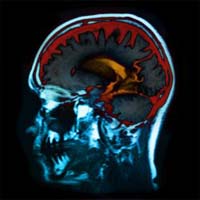Antibody Slashes Brain Damage By 70% In Strokes
 Researchers have created an antibody, which could lessen the side effects of a common stroke drug.
Researchers have created an antibody, which could lessen the side effects of a common stroke drug.
Earlier cure for ischaemic stroke, in which a blood clot breaks off the blood supply to brain tissue, is a drug known as rtPA that dissolves the clot.
But, people with haemorrhagic stroke, in which a blood vessel inside the brain ruptures, should not get rtPA as it raises the bleeding risk.
Now a novel finding by Denis Vivien of the University of Caen Basse-Normandie in France has placed a different perspective on this relatively simple picture: rtPA is actually released by brain cells.
In small amounts, rtPA binds to brain-cell receptors for a chemical called NMDA. This triggers a short-lived influx of calcium, enhancing learning and memory.
But damaged neurons release rtPA in large quantities, and this can lead to neighbouring neurons to die. High levels of rtPA can also damage the blood-brain barrier, which may explain why the drug sometimes triggers dangerous bleeding.
Vivien has also created an antibody, which could solve these troubles. It prevents rtPA from binding to the NMDA receptors, blocking its negative effects.
When pests were injected with the antibody on its own or along with rtPA, the quantity of brain damage resulting from a stroke descended to 70% - both when the antibody was given instantly after the stroke and 6 hours later. Three months later, these mice also showed significantly less disability.
The results were presented during the Forum of European Neuroscience in Amsterdam, the Netherlands. (With Inputs from Agencies)